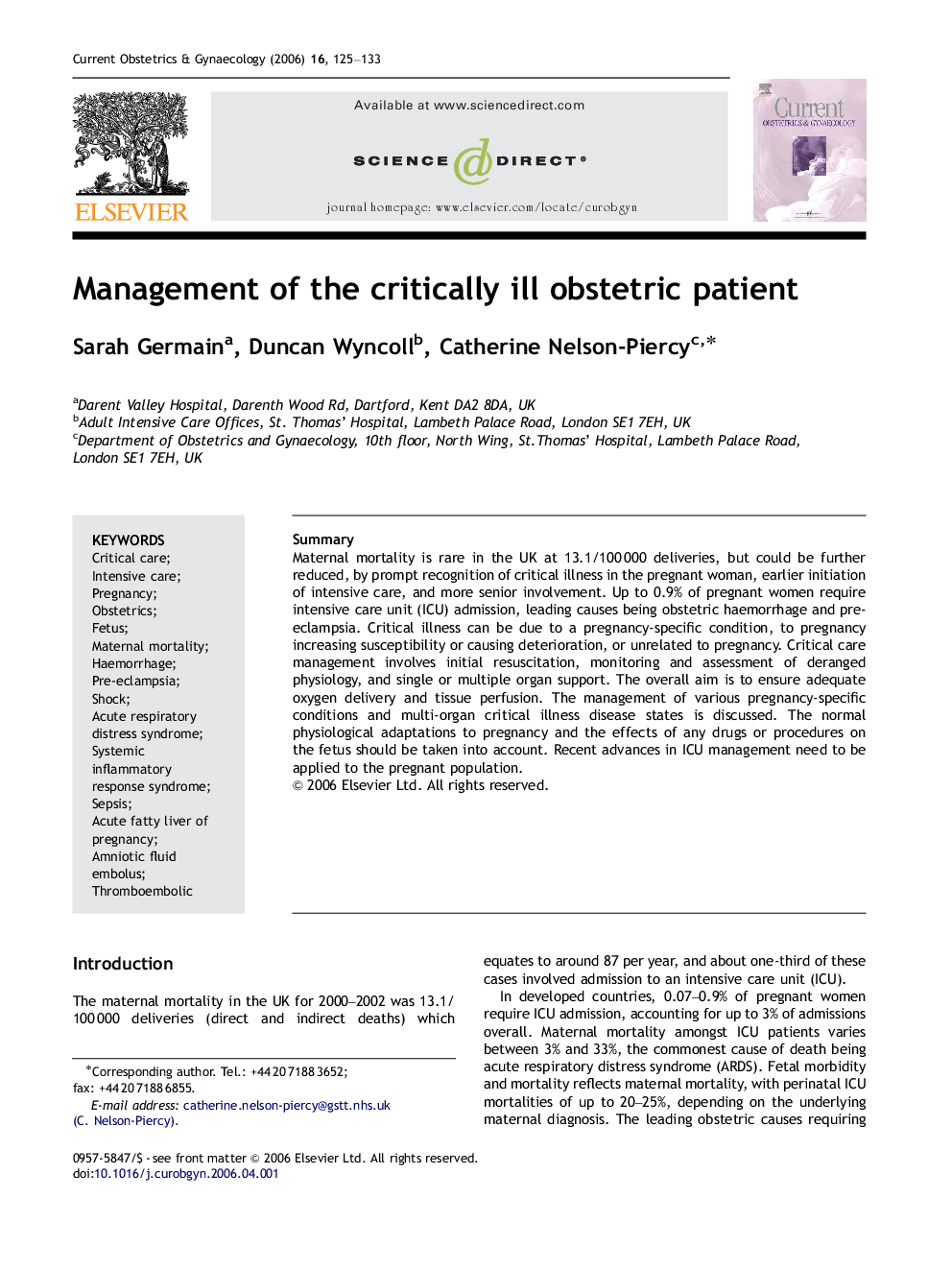| Article ID | Journal | Published Year | Pages | File Type |
|---|---|---|---|---|
| 3916294 | Current Obstetrics & Gynaecology | 2006 | 9 Pages |
SummaryMaternal mortality is rare in the UK at 13.1/100 000 deliveries, but could be further reduced, by prompt recognition of critical illness in the pregnant woman, earlier initiation of intensive care, and more senior involvement. Up to 0.9% of pregnant women require intensive care unit (ICU) admission, leading causes being obstetric haemorrhage and pre-eclampsia. Critical illness can be due to a pregnancy-specific condition, to pregnancy increasing susceptibility or causing deterioration, or unrelated to pregnancy. Critical care management involves initial resuscitation, monitoring and assessment of deranged physiology, and single or multiple organ support. The overall aim is to ensure adequate oxygen delivery and tissue perfusion. The management of various pregnancy-specific conditions and multi-organ critical illness disease states is discussed. The normal physiological adaptations to pregnancy and the effects of any drugs or procedures on the fetus should be taken into account. Recent advances in ICU management need to be applied to the pregnant population.
